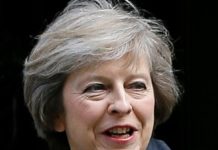
By Doaa Hussein
BUENOS AIRES: Argentina’s newly elected president and Cambiemo’s “let’s change” candidate, Mauricio Macri, celebrated his victorious run-off against Daniel Scioli, after battling in a highly furious competition. Regardless to the many other “non-economic” implications of such change, the country’s economy remains the most urgent concern for many people.
Argentina is the third largest economy in Latin America and the second largest in south-America after its greatest ally Brazil. It has a high-income economy, as it depends on rich natural resources, high literate people, an export oriented agricultural sector, and a diversified industrial base. Although Argentina still maintains a high quality of life and GDP, its economy has faced many recessions during the late 20th century followed by the 2001 dollar default, as well as a free spending administration by Ms. Fernández de kirchner and her husband Néstor Kirchner during the course of the past decade. So all the Argentineans are waiting for Mr. Macri’s promised reforms, that is expected to change the country’s economy from a sagging to a spearheading one…
Why an economic dilemma?
The “shortage of dollars” has been the main problem of Argentina’s economy since the 2001 dollar default. Up-until the global financial crisis, the country was depending on its agricultural exports (especially soy), and foreign investments to pay for its commitments, but eventually, the previous Kirchner’s administration forced import restrictions and currency controls to keep its inflation percentage controlled, and to pay for its government debt (which reached up-to GDP 43% in 2014). The previous cabinet also introduced some programmes to stimulate the domestic economy, and protect low income households.
However, all the previous “pre-cautions” taken by the cabinet proved its staving-off of a severe economic crisis and protecting the gains made since 2003 in living standards and social inclusion. hey failed to solve the structural problems, which made the country much of a “spendthrift”, the expenses were more than the gains, leaving the country with a high 25% inflation, and an overvaluation of the peso (Argentina’s currency), low commodity prices, and an expected fiscal deficit of at least 6% of GDP this year.
“The Central Bank’s firepower is essentially zero,” says Luis Secco of Perspectives, a consultancy to the economist, describing the lack of dollars the central bank is facing.
In fact, On November 21st the Central Bank told commercial banks to sell two-thirds of their dollar holdings to reinforce its own foreign currency reserves.
Nevertheless, the unofficial dual exchange regime in Argentina is making it much harder to get over this problem, and It has also been worse with the previous government decision to meddle with the official statistics of economy, making it a difficult mission for Macri to lead the country out of challenging recession.
Macri’s view of the economy
“Argentina’s big problem today is that for four years there has been no growth, for four years no jobs have been created, and now we have to get the country moving,” Macri said on Monday.
The compassionate conservative president has promised during his campaign taking many measures to overhaul the economic problem with the aid of his 6-members economic team, and started off by assigning former Central-Bank President Alfonso Prat-Gay as his finance minister last Wednesday, as other nominees would be elected soon.
Mr. Prat-Gay said earlier Wednesday that the new administration will move “as soon as possible” to unravel a complex system of currency controls.
For the advocates of Macri’s economic plan, this decision of dismantling currency controls is one of the inevitable decisions that need to be made, especially after American Airlines Group Inc. rejection to Argentine pesos for tickets earlier this week, with currency controls affecting its ability to repatriate its earnings.
Macri also need to take a parallel step by increasing the central bank reserves of foreign currencies (Although it is not clear how many foreign currency reserves the bank has, according to Mr. Prat-Gay).
This can be achieved through several steps like reaching an agreement with U.S bond holders, who led to Argentina’s dollar default in 2014. However, that requires a congress approval in which Macri’s “Let’s Change” coalition only occupy 91 of the 257 seats.
A similar avenue is to making the central bank independent, and Mr. Macri has declared earlier that he plans to replace central-bank President Vanoli with Sturzenegger, a member of Congress and a former chief economist at YPF (Argentina’s state-run oil and gas company). Mr. Vanoli is now under criminal investigation for behind-curtains selling of dollar derivatives at below-market rates… Vanoli, on the other side, has accused Mr. Macri’s team of planning abrupt currency devaluations.
Other escapes from a forecasted crisis are, for instance, devaluing currency and cutting export taxes, so that exports be more competitive, alleviating country spending to compensate the budget’s deficit and holdback inflation, reforming the official statistics office, and last but not least, providing an investor friendly environment, as Argentine bonds increased last week on expectations of such step.
Marci clearly knows that his economic reforms may be hard on many, so he pledged to neither privatise the YPF “Argentina’s oil giant”, nor the Airlines of Argentina, or any other national welfare programmes that could economically harm some people. Macri, former mayor of Buenos Aires, enhanced transportation and poor neighbourhoods in the capital as he promised, as he’s expected not to back off and cause severe austerity measures and hardships on people who wouldn’t be able to endure.











